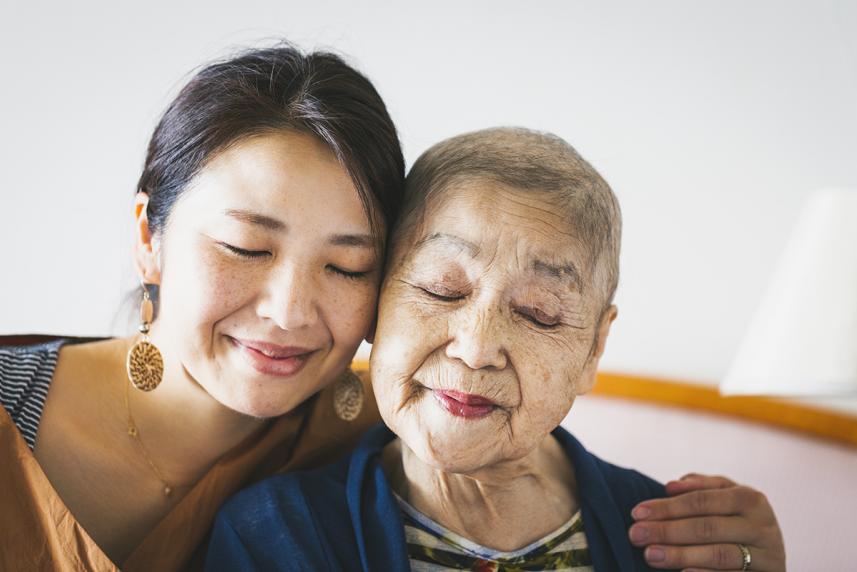
The Blue KC Care Management app makes it easy to get your questions about cancer answered. Download it now and use access code kclinksupport to connect.
Facing chemotherapy for cancer? Here’s what you need to know before you start.

Scientists may not have a cure for cancer yet. But they do have lots of ways — from chemotherapy to radiation to immunotherapy— to treat all the different types. Chemotherapy is a common and powerful approach. This treatment uses different medications to destroy cancer cells in the body.
There is a lot to process when you’re first diagnosed, and it’s completely normal to feel uncertain about what’s to come. But learning all you can about your treatment plan can help you feel prepared. No matter what type of chemotherapy you have, here’s some of what to expect, plus expert tips for getting through.
Before your first session, you’ll meet with the experts who will plan and carry out your treatment. They will recommend a chemotherapy plan and explain the risks and benefits. Your team will include:
How to feel better: It’s only natural to be overwhelmed during this meeting. But don’t be afraid to ask questions — and jot down your answers. You may want to bring a trusted friend or relative to help you remember everything or take notes.
Everybody’s treatment is a little different, depending on the type, size, and location of the cancer. Your age and overall health also figure into your treatment plan. You may go to a clinic to receive your medication via intravenous (IV) infusion. That means it’s delivered through a needle in your arm. Or you may get pills to take at home.
You’ll likely have repeating cycles of treatments. Most cycles last two to six weeks, according to the American Society of Clinical Oncology (ASCO). Your cycle might include one dose a day or just one each week. After you complete two cycles, your doctor may check to make sure the treatment is working as it should.
How many cycles are in your future? That depends on your specific cancer.
How to feel better: The schedule can be complicated. Your team will explain it all. Make sure you get everything in writing too. Or with your doctor’s okay, record the conversation on your smartphone.
If you’re getting infusions, you’ll go to a clinic or hospital. On those days, wear comfortable clothes. You’ll be sitting for several hours. You’ll want to dress so that the nurse can easily access your IV or port.
Chemo can lower your immune system and make you more likely to have infections. Alert your cancer care team if you feel ill or have a fever. And ask if they recommend that you wear a mask. On treatment day, bring some warm socks, a hat, and even a blanket. (Infusion centers have warm blankets, but using your own may provide a bit of emotional support too.)

The Blue KC Care Management app makes it easy to get your questions about cancer answered. Download it now and use access code kclinksupport to connect.
Side effects are typical. The most common one is fatigue, according to ASCO. Other side effects can include skin sores, vomiting, hair loss, and constipation. Your care team can give you medications to prevent nausea, vomiting, and other allergic reactions.
How to feel better: Let your team know if you’re experiencing side effects. There are effective ways to manage and treat these problems, including prescription and over-the-counter medications. And ask your nurse or dietitian about foods you can eat on chemo days to help minimize tummy troubles.
Sometimes, the medications that fight your cancer can affect your mental sharpness. You might be forgetful, have trouble concentrating, or find it hard to finish tasks. This is known as “chemo brain.” It could also be caused by tiredness, pain, and sleep problems from your treatment, says the American Cancer Society.
How to feel better: Gentle exercise can boost your ability to think and focus. Two good options: walking and meditation. Or give gardening a try. You can also ask your team about taking part in a cognitive rehab program that will teach you new ways to perform daily tasks.
Cancer is a life-changing diagnosis. Feeling sad, anxious, or angry is common. These mood shifts may come and go. But if these feelings last for several weeks, it could be a sign of depression. In fact, major depression affects 1 in 4 cancer patients, according to the ACS. And being seriously depressed can make it harder to follow your treatment plan, so finding ways to address it is important.
How to feel better: Let your family and friends — and your care team — know how you’re feeling. Help is available, and it can make a big difference. Consider working with a mental health professional, such as a:
For some people, joining a cancer support group, either in person or online, is helpful. Regular exercise during cancer treatment can also ease depression and anxiety. That’s another good reason to lace up your sneakers and get moving.
Additional sources:
Chemo brain: American Cancer Society
Treatment cycles: American Society of Clinical Oncology
Common side effects: American Society of Clinical Oncology
Depression: American Cancer Society
Blue Cross and Blue Shield of Kansas City is an independent licensee of the Blue Cross and Blue Shield Association.